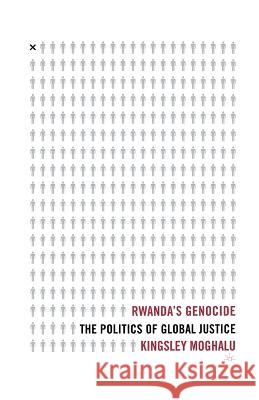Rwanda's Genocide: The Politics of Global Justice » książka
topmenu
Rwanda's Genocide: The Politics of Global Justice
ISBN-13: 9781349532483 / Angielski / Miękka / 2005 / 239 str.
Rwanda's Genocide: The Politics of Global Justice
ISBN-13: 9781349532483 / Angielski / Miękka / 2005 / 239 str.
cena 201,24
(netto: 191,66 VAT: 5%)
Najniższa cena z 30 dni: 192,74
(netto: 191,66 VAT: 5%)
Najniższa cena z 30 dni: 192,74
Termin realizacji zamówienia:
ok. 16-18 dni roboczych.
ok. 16-18 dni roboczych.
Darmowa dostawa!
An insider account of the International Criminal Tribunal for Rwanda











